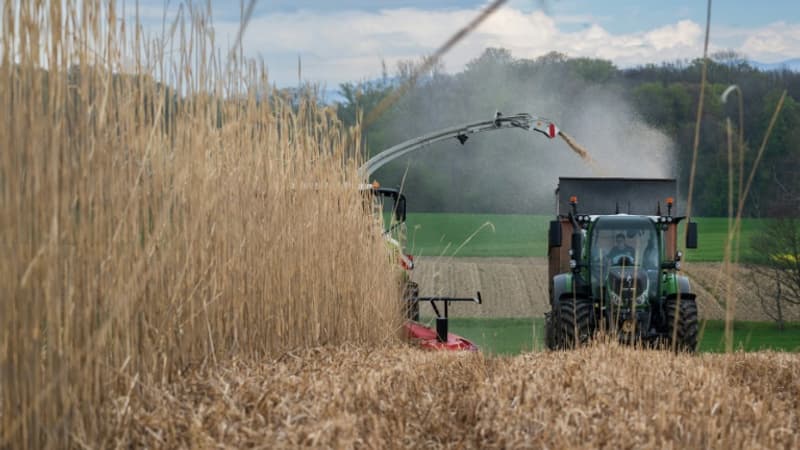Buy butter in moderation, use food donations, heat her house as little as possible: Stéphanie, a farmer, suffers the full weight of rising prices that weigh on an already very tight family budget and unpredictable income.
In the agricultural sector, almost one in five households lives below the poverty line, but few farmers go to associations that fight against precariousness. Stéphanie (requested anonymity) is one of them. This forty-something lives between Rennes and Lamballe, on the farm of her partner, Jérôme. She grows cereals on her small 30-hectare farm, without being able to pay herself.
Stéphanie has an industrial chicken coop and works “in integration”: a company provides her with the chicks, invoices her for the costs and buys the chickens from her after 35 to 45 days, at a non-negotiated price. Her business, already affected by bird flu, is now affected by Ukrainian competition. Since the end of August, her chicken coop has been empty.
Food donation
To feed his family, he goes every other Wednesday to a Secours populaire branch, 10 minutes by car from his house, alternating with the Food Bank. The Secours populaire de Dinan (Côtes-d’Armor) covers 66 municipalities in rural areas. “The difficulty we encounter is getting in touch with people,” Dominique Léonard, its secretary general, explains to AFP. Hence the creation of this mobile branch, where volunteers carry food packages.
Stéphanie benefits from packages at “50 cents a head” with bread, preserves, “sometimes fish, chicken cutlets, yogurts.” “We don’t pick all the vegetables because we have a garden,” she explains.
She fills up at the supermarket. “Everything has increased: butter, I take the minimum. Sometimes I bought eggs in the store, I don’t do that anymore,” says Stéphanie. Impossible to have your own chickens, to avoid the spread of diseases on your farm. In the case of meat, he prefers direct sales to neighboring breeders. The family buys in bulk, as evidenced by the batches of toothpaste stored in the house.
Christmas tips
The car, essential in rural areas, represents a heavy burden. For a weekly refueling, “there is easily one that costs 100 euros, whereas before I had it for 70-75 euros,” says Stéphanie.
When it breaks, it’s a hassle. Between the house and the stable there are several cars parked, some doubles. One is used for transportation and the other for spare parts. Other expenses have increased: the private school – closer than the public one – the canteen, the daycare, the heating, Stéphanie’s lists. To turn on the radiators, “we wait a long time for it to be cold, we put them on 2, before it was on 2-3,” she explains.
For Christmas gifts, “we have tips”, like children’s cars purchased with loyalty points at the supermarket, “if not, it’s recycling,” says Stéphanie, showing a ping pong table enthroned in an old stable. Her children go on exceptional vacations thanks to the help. The parents don’t leave. In the event of an exceptional expense, it is sometimes necessary to resort to debt, “revolving credits at 18, 19%”, describes Stéphanie.
Farmers in difficulty “were trapped by inflation, but not only that,” says Dominique Léonard. “The agri-food groups don’t give them any gifts,” says the volunteer. Integration farmers “are simply the feeders (of the animals they raise), they don’t decide anything,” he continues. “We return to servitude,” judges the volunteer.
Source: BFM TV


